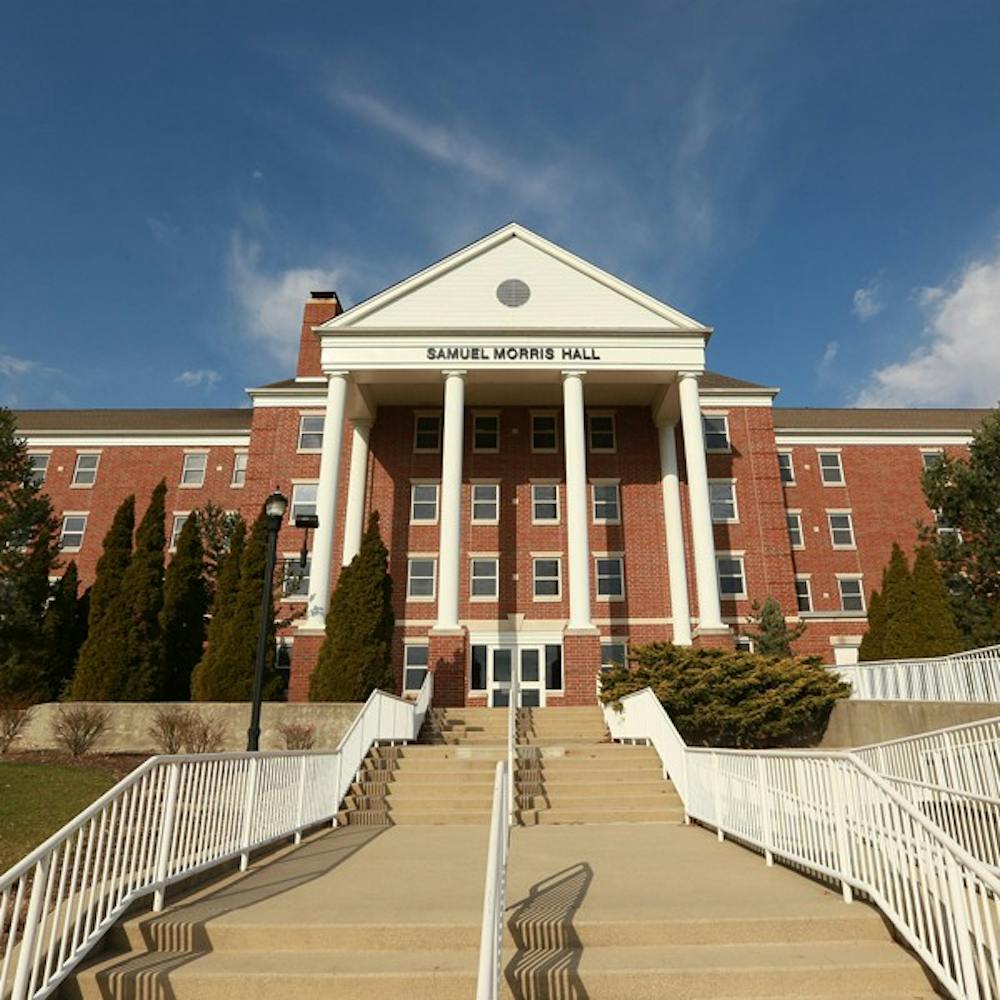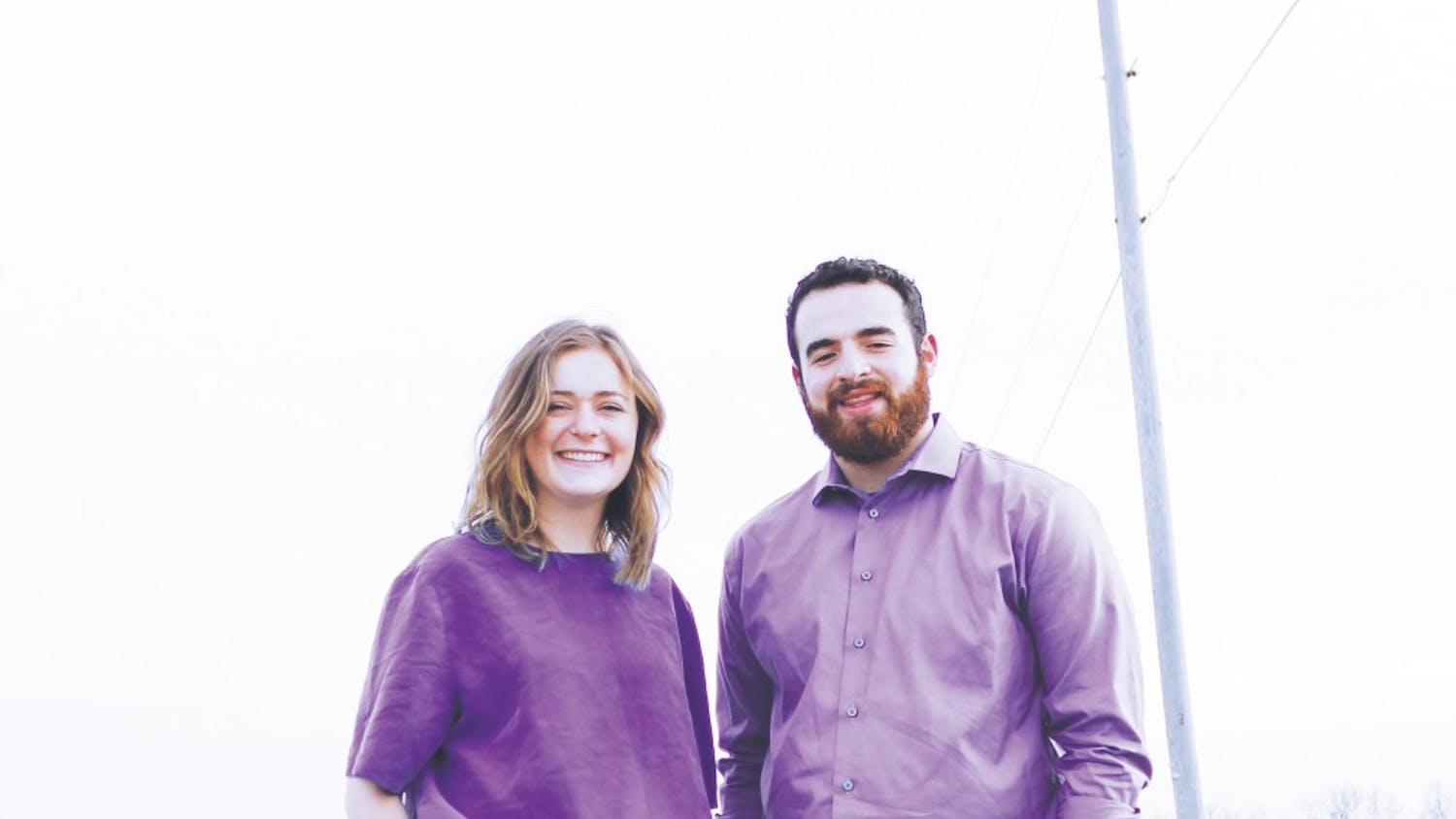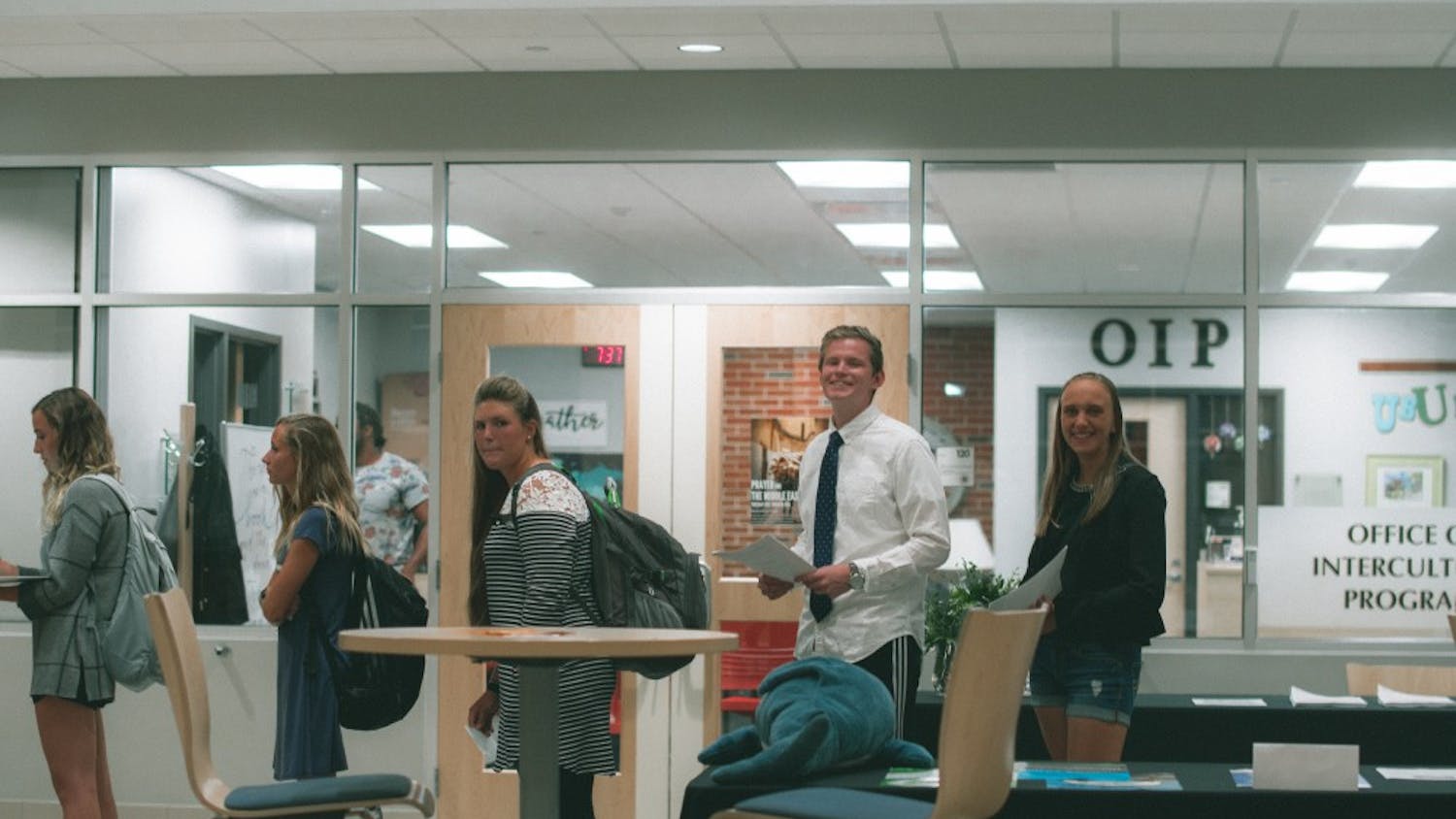Samuel Morris Hall, more commonly known as “Sammy,” has a multitude of stereotypes.
“Sammy Boys” are often known for their rowdiness and unique traditions. Blanket statements are made constantly about campus’ largest all-male dorm. They are known for having disciplinary problems, being more machismo, nerdy or not taking their time at Taylor seriously.
I interviewed three different men from different floors of Sammy to gain perspective on what Sammy is really like.
Blake Jarosinski, a senior and former man of “Sammy 2” who currently lives in the apartments, was asked if the stereotypes regarding Sammy are true.
“These stereotypes are kind of like selffulfilling prophecies and people can grow into that.” Jarosinksi said. “When people are loud around you and that is the expectation, people get louder.”
When asked about the culture of Sammy, he called it “very inclusive” and has a strong family unit that leans heavily on tradition. Jarosinski brought up “Sammy 2 sucks,” which he described as the old reputation of the floor which had a strong connotation of “toxic masculinity”.
He explained how floor leadership, really emphasized trying to change that culture to make it healthier while he was a student on Sammy 2. He remembers events about sexuality and topics about homophobic language or speech being talked about in response to the old culture.
When asked about the rowdiness, he pointed to Sammy’s size and the fact that it is the largest all male dorm.
“People stereotype a lot of Sammy’s culture on that fact that it is a bit more machismo,” he said. “This is partly because there are just so many men living together in a large dorm.”
However, this stereotype is still a stereotype that does not account for every man living in Sammy.
Quinn Anderson, a current senior who lived on the Brotherhood(“BroHo”) his freshman year and then moved to Wengatz to play soccer his sophomore year,experienced what it was like to live in both Sammy as well as Wengatz.
“I have heard the stereotype that men in Sammy do not take their relationship with the Lord seriously,” Anderson said.
But Anderson does not believe this to be true.
There are people in both where people do not take their relationship with the Lord seriously,” he continued. “But due to there being more men in Sammy it is more apparent. Two voices are louder than one. One of the best small groups I was in was on BroHo.”
Anders Soderquist, a 2020 alum and former student body president who lived on the first floor of Samuel Morris Hall all four years and was a PA his sophomore year, talked about the stereotypes of Sammy that come from it being the dorm with the most disciplinary actions and lowest GPA.
“Even though we are the largest, I think that we are viewed as the trouble-makers,” Soderquist said. “I do not think there is anything wrong with Sammy. There is nothing deficient. We are college age men trying to figure it out the best we can. We look at Sammy and there are behavior issues that may make us be like that. I don’t know why that is the way it is, but creating narratives saying there is something wrong with Sammy is wholly unhelpful. Kindness, compassion, hope and grace are helpful.”
Anders begs these questions that may help us look at the community of Sammy in a healthier way.
“What is your goal when you look at Sammy?” He said. “Is your hope that their behaviors would change? Or is your hope for them to grow into the young men that God wants them to be?”
In the 1898 Taylor University yearbook formerly known as “The Gem,” there was an article on the life of Samuel Morris Hall’s namesake — Samuel Morris. In it, the piece spoke highly of Samuel Morris and his legacy. “His work is going on and the influence of his holy life is being felt all over the whole world.”
122 years later, the same can be said.
As humans, it is easy for us to assume who is good and who is bad, or even where God is moving and working. But to assume these things and to stereotype is an incomplete picture of reality.
These stereotypes, however, just like any stereotype, are incomplete, because they do not see people as their whole selves. When we look at dorms and dorm stereotypes we need to reevaluate our hearts and what it truly means to be in community.
In the words of Deitrich Bonhoeffer, “Those who love their dream of a Christian community more than the Christian community itself become destroyers of that Christian community even though their personal intentions may be ever so honest, earnest, and sacrificial.”





